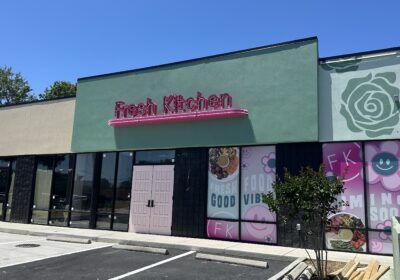Is it worth it?
Provost Ralph Wilcox had a message to deliver during last week’s faculty assembly: adapt or perish.
Wilcox warned faculty Aug. 18 that the nature of higher education has been reduced to a commodity. In light of increasing tuition costs and a failing economy, students are expecting more from their universities, he said, and not all are happy with the return on their investment.
“As we contemplate USF’s future, we must recognize both the internal and external conditions we face,” he said during the assembly. “New paradigms appear to reinforce the notion of students as customers. Like it or not, more and more students and parents are investing in higher education with a singular purpose in mind – a well-paying job. Our role ought to be a job creator.”
However, some of the student services offered aren’t yet up to standards.
In a recent Princeton Review report, based on student responses, USF was ranked No. 17 in the nation for least accessible professors.
In an interview with The Oracle, Wilcox said he was surprised by the report, but said the University will have to accommodate students’ increasing expectations.
“With students paying more and more tuition, they expect increased service from the University, and I suspect that’s part of what we’re seeing in regards to students’ responses,” he said. “They certainly don’t expect less access to faculty.”
Wilcox said adapting to students’ needs will take time and is a process that is not fully defined.
USF has a student-to-faculty ratio of 28:1 – higher than the 61 accredited universities in the Association of American Universities (AAU), a nonprofit organization comprised of leading public and private research universities in the U.S. and Canada.
Wilcox said improving that ratio remains his main priority in increasing the value of a USF education, in addition to investing in fields with increasing jobs.
The University plans to continue their efforts in investing in Science, Technology, Engineering and Mathematics (STEM) related fields, which have a 17 percent predicted growth trajectory from 2008 to 2018, as opposed to 9 percent of non-STEM related fields in the same time frame, Wilcox said. The Florida Board of Governors in June approved nearly $23 million in USF’s budget toward STEM-related fields for the 2012-13 school year.
Wilcox said the increased tuition costs at USF don’t mean the University has more resources. The hike in tuition offsets Florida’s trend in decreasing funding for public education. In 2008, the state funded 72 percent of higher education costs, but now funds 59 percent, he said.
Chris Thomas, an economics professor, said as tuition increases, more individuals are questioning the value of a college degree from a four-year institution.
“A lot of people are asking the question, ‘Is it worth it?'” he said. “As the public sector is shifting the burden of higher education to the family, there’s more awareness that there is no such thing as a free lunch, and that creates a mental sharpening of cost-benefit analysis.”
Thomas said the “commodification” of education is catalyzed with the rise of online degree programs available at lower prices than many public universities. Yet, tuition for online universities such as Kaplan and DeVry averages about $200 to $400 more per credit hour than USF.
“As the state backs out of public education, and as the public starts paying higher tuition, then the consumer is going to become price-sensitive,” he said. “If you can get most of your courses done online, and it’s a commodity degree, you’re going to go wherever it’s cheapest. That creates the forces of a competitive market.”
For Valerie Strawn, a freshman majoring in psychology, the value of attending college has not diminished.
“I hope to learn more about what I want to do,” she said. “With the way (the economy is) now, you really can’t get a job without a degree.”
Dalia Odeh, a freshman who has not yet decided a major, said that despite not knowing what field to pursue, attending college is necessary to “get a good job and make money.”
However, despite the University’s desire to accommodate customers with a new mindset, Wilcox said the education process won’t simply be “a means to an end.”
“We’ve got to balance the growing needs and expectations of students with the broader expectations of serving the public good,” he said.






